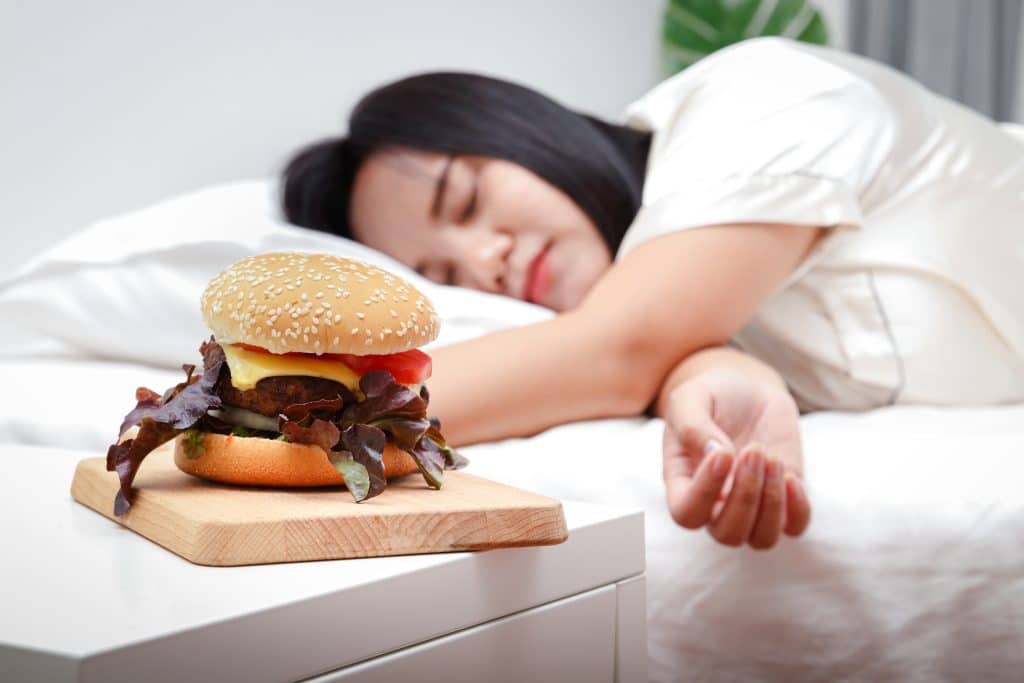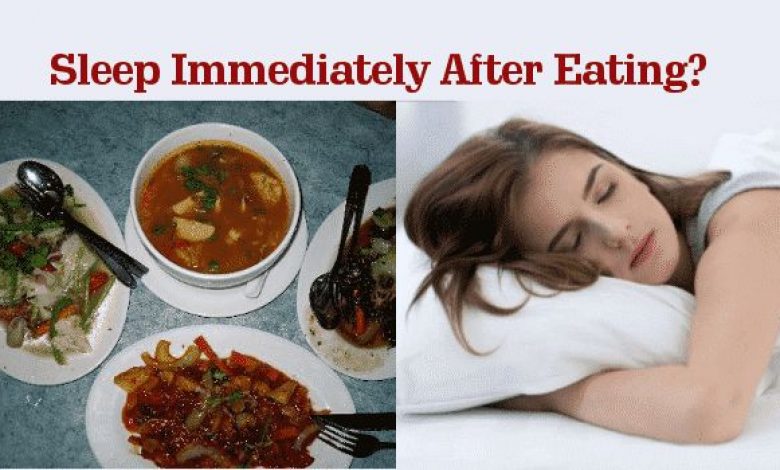

To help you nod off, minimize stimulants that can prevent sleep, such as having a TV or other electronic devices in your bedroom. Try to get to bed at roughly the same time each night and wake at the same time each morning. Instead, choose the "healthy" polyunsaturated and monounsaturated fats found in certain oils (canola, corn, olive, peanut, sunflower, sesame, soybean and safflower), avocados, olives, nuts (almonds, peanuts, cashews, etc.), sunflower, sesame and pumpkin seeds, soy milk, tofu and fatty fish (salmon, tuna, mackerel, herring, trout and sardines). Foods that are high in saturated fats include high-fat cuts of beef, lamb and pork, chicken with the skin, whole-fat dairy products, butter, cheese, ice cream and lard. We all know saturated fats aren't good for the heart, but according to studies, high fat diets can also disrupt your circadian clock.


Getting the right amount of sleep - and getting quality sleep - will help keep your circadian rhythms aligned and keep your appetite hormones in check. So you won't ever feel "starving" and will be less likely to have those late-night binges. Often times when we feel really hungry, we choose foods such as fast food, potato chips and cookies rather than taking the time to make a healthy choice.Įating three healthy meals at roughly the same time each day, and supplementing with two or three high-protein snacks (a handful of raw almonds or cashews, raw veggies with hummus, lowfat or nonfat Greek yogurt, a protein bar, etc.) will keep your appetite hormones in check and keep you feeling satiated. If you go a long time without eating, your body uses hormones to tell your brain that you are hungry. 5 ways to lower your riskįortunately, there are some simple ways to ensure that your behaviors and body rhythms are in perfect sync, including the following: 1. Having irregular mealtimes and/or unusual sleep-wake cycles (going to bed very late, waking very late or getting little sleep) contributes to "circadian misalignment," when a person’s behaviors become misaligned with the body's natural rhythms.Īccording to clinical dietitian Jennifer Ventrelle, MS, RD, this misalignment impacts all of the body's internal regulatory systems, including its ability to appropriately metabolize food.may increase a person's risk of obesity, independent of sleep timing and duration. eat more fast food and sugar-sweetened beverages, and less fresh fruit and vegetables and have higher body mass index (BMI). People who go to sleep later and get less overall sleep consume more calories both at dinner and after 8 p.m.Research, including studies by researchers at Rush University Medical Center, has shown that irregular sleeping and eating patterns are interacting factors that potentially impact obesity - meaning it's not just what you eat, but when you're eating that matters.Īmong the findings of these studies are the following: If so, you may be increasing your risk of obesity and the health problems that go with it, including heart disease and diabetes. or hit the fast food drive-through when most people are fast asleep? Avoid tea one hour before and after meals.Are you a late-night snacker, prone to munching on leftover pizza while watching Letterman? Do you raid the fridge at 3 a.m. Drinking tea immediately after a meal will also interfere with iron absorption by the body. If you consume protein in the meal, the acid from the tea will harden the protein content, making it difficult to digest. Tea leaves are acidic and will affect the digestion process. Fruits will not be digested properly if you eat them directly after a meal. Fruits should be eaten an hour before a meal or two hours after a meal. Eat fruits first as they are the easiest to digest. No fruitsĭifferent foods digest at different speeds. The blood around the stomach flows to other parts of the body during a shower instead of helping with digestion. No bathingīathing after a meal delays digestion. No matter how true or false this is, smoking is harmful to your body and you should not smoke anyhow. It is said that smoking after a meal is equivalent to smoking 10 cigarettes. The meal has not been digested at all! A nap immediately after a meal is also not relaxing.
#When should i sleep after eating full
More often than not, I wake up still feeling full from the meal. On some weekends, I plunge into bed after lunch. Many of these habits do you more harm than good.ĥ things you should avoid doing immediately after a full meal: No sleeping Others like to have a cup of tea thinking it will help them digest the food. Some of my smoker friends like to go for a puff immediately after a meal.

On weekends, I sometimes head back to bed after lunch. Often, after a full meal, I naturally feel sleepy. 5 things you should not do after a full meal.


 0 kommentar(er)
0 kommentar(er)
